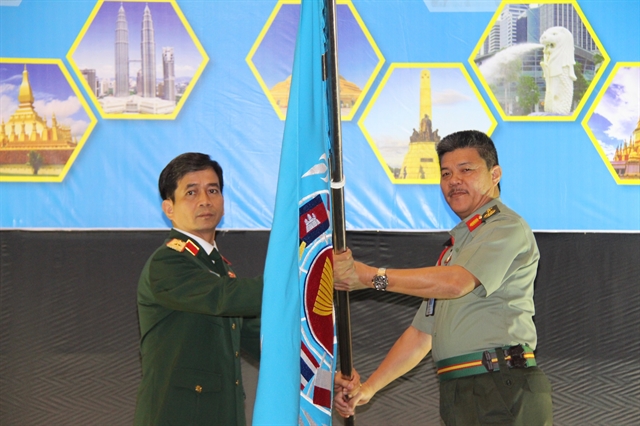 Politics & Law
Politics & Law


|
| Director of Vietnam Department of Peacekeeping Operations Major General Hoàng Kim Phụng (L) receives a flag in Malaysia on Friday for the organisation of the eighth annual general meeting of the ASEAN Peacekeeping Centres Network (APCN) in Việt Nam in August, 2020. — VNA/VNS Photo Nguyễn Hà Ngọc |
KUALA LUMPUR — Việt Nam will host the eighth annual general meeting of the ASEAN Peacekeeping Centres Network (APCN) next August.
The information was announced at the closing session of the seventh APCN meeting held in Kuala Lumpur, Malaysia, on Friday.
Director of Vietnam Department of Peacekeeping Operations Major General Hoàng Kim Phụng told Vietnam News Agency correspondents on the sidelines of the event that next year, as ASEAN chair, Việt Nam would organise a wide range of important events such as ASEAN Defence Ministers Meeting (ADMM) and ADMM Plus.
This would be the first time Việt Nam assumes an important role relating to peacekeeping activities by hosting the eighth APCN meeting and chairing the Association of Asia-Pacific Peace Operations Training Centres (AAPTC), he said.
This shows the country is ready for international and regional missions, according to Phụng. They are also a chance for the Vietnam People’s Army to promote the image of Việt Nam as a responsible member of ASEAN and the UN.
Việt Nam has committed to participating in the UN’s peacekeeping activities, and enhancing collaboration to improve ASEAN’s peacekeeping capability, he stressed, adding the country’s efforts have been acknowledged by the UN and international friends.
The APCN aims to enhance peacekeeping collaboration among defence and armed forces within ASEAN. It aims to set up co-ordination among the nations to facilitate experience and expertise sharing, and help peacekeeping centres in the countries enhance capacity as well as make good preparations for joining UN peacekeeping operations.
The seventh APCN meeting, which took place on September 2-6, drew 24 delegates from ASEAN member states and the ASEAN Secretariat. The meeting focused on regional security architecture; women, peace and security; and building standard centres on gender equality training in security activities. — VNS




